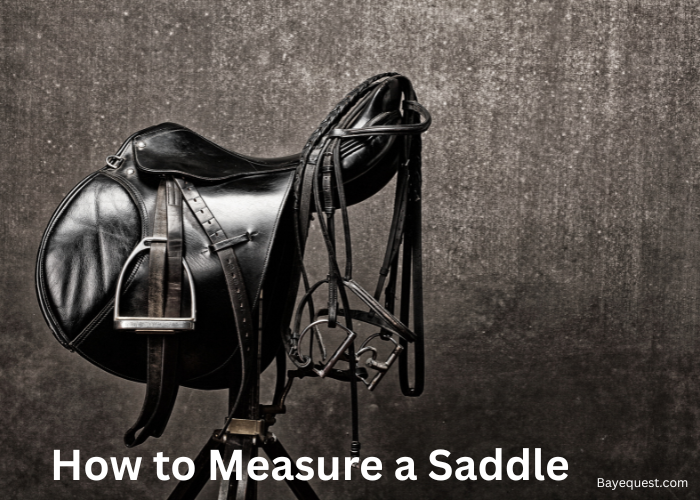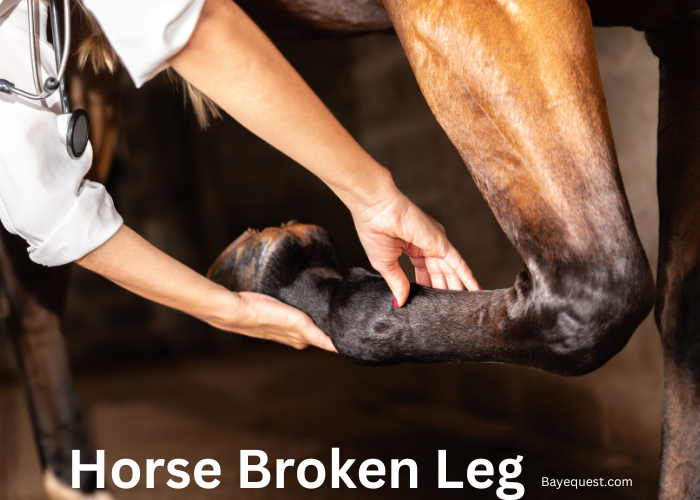Ketamine is often linked to horses, but its story is far from simple.
Known for its use in animal tranquilization, this drug has also gained attention for its role in human medicine.
As curiosity grows about its effects and applications, one question stands out: is ketamine a horse tranquilizer?
In this blog, we dive into the many layers of this intriguing substance, exploring its history, medical uses, and the myths surrounding it.
Stick around to discover what makes ketamine a subject of growing interest.
What is Ketamine?
Ketamine is a drug that works as an anesthetic. It helps people and animals feel no pain during surgery and is also used to manage pain in emergencies.
Over time, doctors discovered its benefits in other areas. In emergency rooms, ketamine is a go-to for pain management.
It’s especially handy because it works quickly and doesn’t mess with your breathing like some other drugs.
But here’s where it gets really interesting: mental health. Researchers found that ketamine can help treat severe depression and PTSD.
It works differently from traditional antidepressants, offering relief when other treatments haven’t worked.
It’s given in low doses, often through an IV, and can bring rapid relief from depressive symptoms.
Ketamine is also used in veterinary medicine. Vets use it to anesthetize animals for surgery, including horses, which is where the “horse tranquilizer” nickname comes from. B
ut, as we’ve covered, that’s just a small part of its story.
History and Origin of Ketamine
Let’s talk about where ketamine comes from. It all started back in the early 1960s.
Scientists were looking for a new anesthetic, something safer than what they had at the time. They needed a drug that worked fast and didn’t have too many side effects.
In 1962, a guy named Dr. Calvin Stevens developed ketamine. It was first tested on animals, then humans. The results were impressive.
Ketamine could put someone under quickly, making surgeries easier and safer. Plus, it didn’t mess with breathing or heart rates too much, which was a big deal.
By 1970, ketamine was approved for use in the United States. It became a popular anesthetic in hospitals and on the battlefield.
During the Vietnam War, medics used it to treat soldiers because it worked fast and was easy to carry around.
But ketamine’s journey didn’t stop there. Over the years, doctors found more uses for it. In the 1990s, it started being used for pain management in emergency rooms.
Then, in the 2000s, researchers discovered its potential for treating depression and PTSD. This was a game-changer.
So, ketamine’s history is rich. It’s come a long way from a lab in the 60s to battlefields, hospitals, and mental health clinics.
It’s a drug with a fascinating past and a promising future.
Is Ketamine a Horse Tranquilizer?
Not really. It’s a bit more complicated than that. Ketamine is an anesthetic.
Yes, vets use it on horses, but that’s not its only job. It’s used in human medicine too. Doctors use it to manage pain and even to treat depression.
So, calling it just a “horse tranquilizer” is pretty misleading. It’s like saying a Swiss Army knife is just a can opener.
Ketamine does a lot more than just calm down horses. It’s a versatile tool in both veterinary and human medicine.
Ketamine as a “Horse Tranquilizer”
Let’s clear up the “horse tranquilizer” label for ketamine.
First off, calling ketamine a “horse tranquilizer” is a bit misleading. Yes, vets use ketamine on horses, but it’s not just a tranquilizer. It’s an anesthetic.
Here’s what that means:
Anesthetics put animals (and people) to sleep so they don’t feel pain during surgery. Ketamine does this well.
It’s quick and effective, making it a favorite for vets, especially with large animals like horses.
The term “horse tranquilizer” comes from ketamine’s use in veterinary medicine. Vets use it to sedate horses and other large animals.
But this term doesn’t do justice to all the other important medical uses of ketamine.
Ketamine isn’t just for horses. Vets use it on various animals, from cats and dogs to livestock. In human medicine, it’s a crucial tool for anesthesia, pain management, and even treating depression.
The nickname makes it sound like ketamine’s only purpose is to calm animals down, but that’s only a small part of its story. It’s a powerful anesthetic that helps animals and humans in many ways.
So, while “horse tranquilizer” might be a catchy phrase, it doesn’t capture the full picture. Ketamine is a versatile and essential drug in both veterinary and human medicine.
Medical Uses of Ketamine in Human
Ketamine is a versatile drug with a range of uses. Some of its uses include:
1. Anesthesia
Ketamine is widely used as an anesthetic. It’s given before surgeries to put patients to sleep so they don’t feel pain.
It’s fast-acting and doesn’t depress breathing as much as other anesthetics, making it safer for some patients.
2. Pain management
In emergency settings, ketamine is used for pain relief. It’s especially useful for severe pain, like from injuries or surgeries.
It works quickly and is effective even in low doses. Plus, it can be used when other painkillers might not be safe.
3. Treatment-resistant depression
One of the most exciting uses of ketamine is for treating depression, especially when other treatments have failed.
Low doses of ketamine can quickly reduce symptoms of depression. It’s often given through an IV and can start working within hours.
4. PTSD (Post-Traumatic Stress Disorder)
Ketamine is also being used to help people with PTSD. Like with depression, it can bring quick relief from symptoms. This has been a breakthrough for many who haven’t found help with other medications.
5. Sedation
In critical care, ketamine is used to sedate patients. It helps keep them calm and comfortable, especially in situations where other sedatives might not be safe or effective.
6. Chronic pain management
For chronic pain conditions like complex regional pain syndrome (CRPS), ketamine can provide relief. It’s often part of a comprehensive pain management plan and can help reduce the need for opioids.
Ketamine in Veterinary Medicine
Ketamine’s versatility makes it a go-to drug in veterinary medicine. Let’s find out how:
1. Anesthesia for surgeries
Vets use ketamine to anesthetize animals during surgeries. It works fast, helping animals go to sleep quickly and stay pain-free. This makes surgeries safer and more manageable.
2. Pain management
Ketamine also manages animal pain, especially after surgeries or injuries. It helps keep them comfortable and speeds up recovery.
3. Calming aggressive animals
In situations where animals are aggressive or highly stressed, ketamine can be used to calm them down. This makes it safer for both the animals and the vets handling them.
4. Procedures for large animals
For large animals like horses and cattle, ketamine is particularly useful. It helps during procedures that require the animal to be still and pain-free. This is where the “horse tranquilizer” nickname comes from.
5. Euthanasia
In some cases, ketamine is used in euthanasia to ensure the process is painless and peaceful for the animal.
Comparing Veterinary and Human Uses of Ketamine
Ketamine is used in both veterinary and human medicine.
In veterinary settings, vets use ketamine to anesthetize animals during surgeries. It helps manage pain after operations and can calm aggressive or stressed animals.
Sometimes, it is also used in euthanasia to ensure a painless process.
In human medicine, ketamine is used for anesthesia and pain management in emergencies.
Recently, it has become a groundbreaking treatment for mental health issues like treatment-resistant depression and PTSD. Low doses of ketamine can provide quick relief from severe symptoms.
While both fields use ketamine for its anesthetic and pain-relieving properties, its role in mental health treatment is unique to human medicine.
This shows how versatile and important ketamine is in different medical contexts.
Myths and Misconceptions of Ketamine
Myth 1: Ketamine is just a “horse tranquilizer.”
Fact. While ketamine is used by vets to anesthetize horses and other animals, it’s also a powerful anesthetic and pain reliever for humans. It’s used in surgeries, emergency rooms, and for treating mental health conditions.
Myth 2: Ketamine is only for recreational use.
Fact. Although ketamine can be abused recreationally, it has significant medical uses. It’s an important tool in pain management and anesthesia and is increasingly used to treat depression and PTSD under medical supervision.
Myth 3: Ketamine is dangerous and always leads to addiction.
Fact. Ketamine can be addictive if misused, but when used properly in medical settings, it is safe and effective. Medical professionals carefully control dosages to minimize risks.
Myth 4: Ketamine is a last-resort drug.
Fact. Ketamine is often a first-choice drug in emergencies because it’s quick and effective. Its ability to provide rapid relief makes it valuable in medical and mental health treatments.
Myth 5: Ketamine is a new drug.
Fact. Ketamine has been around since the 1960s. It has a long history of safe and effective use in veterinary and human medicine.
Myth 6: Ketamine is only used for anesthesia.
Fact. Beyond anesthesia, ketamine is used for pain management and for treating mental health conditions like depression and PTSD.
Myth 7: Ketamine causes hallucinations and out-of-body experiences every time.
Fact. While ketamine can cause hallucinations at high doses or when used recreationally, medical use involves controlled, lower doses that minimize these effects.
Myth 8: Ketamine is not widely accepted in the medical community.
Fact. Ketamine is widely accepted and used in various medical fields. Its use for mental health treatment is growing, with many clinics offering ketamine therapy for depression and PTSD.
Myth 9: Ketamine is harmful to the brain.
Fact. When used appropriately in medical settings, ketamine is safe. Long-term, high-dose recreational use can be harmful, but medical use under supervision does not pose the same risks.
Myth 10: Ketamine is only for severe cases.
Fact. While often used for treatment-resistant cases, ketamine can be used earlier in treatment plans for its rapid and effective relief of symptoms.
Other Horse Tranquilizers
Other horse tranquilizers, besides ketamine, are used in veterinary medicine to calm or sedate horses. Here are a few:
1. Xylazine. This is a sedative and muscle relaxant. It’s often used to calm horses during medical procedures. It helps reduce anxiety and makes handling the animal easier.
2. Detomidine. This is also a sedative used in horses. It has strong calming effects and is often used for minor surgical procedures, dental work, or pain management.
3. Acepromazine. Acepromazine maleate is a tranquilizer that helps reduce anxiety and aggression in horses. It’s commonly used before transportation or other stressful situations.
4. Romifidine. Romifidine is similar to detomidine and xylazine. It sedates horses for various procedures and helps keep them calm and still.
Interesting read: Why are horses microchipped?
Is Ketamine Horse Tranquilizer? FAQs
Is ketamine only used as a horse tranquilizer?
No, ketamine is not only used as a horse tranquilizer. While it is used in veterinary medicine to sedate and anesthetize horses and other animals, its applications extend far beyond that. Ketamine is a valuable anesthetic and pain reliever in human medicine as well.
Is ketamine addictive when used for medical purposes?
Ketamine is not addictive when used for medical purposes under proper supervision. In medical settings, it’s administered in controlled doses by healthcare professionals. This minimizes the risk of addiction. However, like any drug, if it’s abused, there is a potential for addiction.
Is Ketamine Used as a Horse Tranquilizer? Conclusion
Yes, ketamine can be used as a horse tranquilizer but it’s so much more. It’s a versatile drug used in both animal and human medicine.
From calming horses to treating severe depression, ketamine wears many hats. It’s an anesthetic, a pain reliever, and a mental health breakthrough.
While it does help our four-legged friends, it also saves human lives and eases suffering. Next time someone mentions ketamine, you’ll know the full story.
It’s not just for horses, and it’s not just a tranquilizer. It’s a powerful tool in modern medicine, helping countless patients in countless ways.








